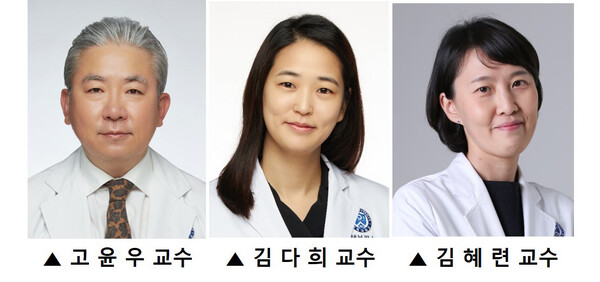A study -- led by Professors Koh Yoon-woo and Kim Da-hee from Severance Hospital's Department of Otorhinolaryngology, alongside Professors Kim Hye-ryun from the Department of Oncology, Lee In-suk and Ha Sang-jun from Yonsei University's College of Life science and biotechnology -- has revealed insights into the immune responses of human papillomavirus (HPV)-positive head and neck cancer patients.
The study utilized single cell analysis to examine cancer cells and immune cells within the tumor microenvironment of these patients. This approach revealed essential cellular and molecular factors that influence how these patients respond to immuno-oncology treatments.

Head and neck cancer, known for its poor prognosis, has historically been linked to smoking and alcohol consumption.
Recently, the incidence of HPV-related head and neck cancers has been on the rise in Korea.
Fortunately, HPV-positive patients tend to respond better to conventional cancer treatments compared to HPV-negative patients, Severance Hospital said.
Despite this, recent large-scale clinical trials have shown no significant difference in prognosis between HPV-positive and negative patients undergoing immunotherapy, prompting investigation into the underlying reasons.
To address this gap, the research team conducted a comparative analysis of tumor microenvironments and immune cells at the single-cell level between HPV-positive and negative head and neck cancer tissues. They used methods such as single-cell RNA and T-cell receptor sequencing of biopsies from the tonsil or base of tongue tumors before immunotherapy.
Their findings revealed that specific CD161 receptor expression on cytotoxic T cells in HPV-positive cancers inhibits the efficacy of immunotherapy. They further observed that CD161 receptor expression interferes with the formation of crucial tertiary lymphoid structures by hindering CD161 ligand expression on B cells.
This sheds light on why HPV-positive head and neck cancer patients, while generally showing better prognoses in various cancer therapies, exhibit no significant advantages in immunotherapy outcomes compared to HPV-negative patients.
The study's findings suggest that the specific expression of the CD161 receptor on cytotoxic T cells could be utilized to predict the efficacy of immunotherapy in HPV-positive head and neck cancers. Moreover, future developments in technologies to inhibit CD161 receptor activity could potentially enhance the effectiveness of immunotherapy for these patients.
"This study not only predicts immune responses to immunotherapy in head and neck cancer patients but also lays a critical foundation for future advancements in treatment technologies,” Professor Kim Hye-ryun said.
The study results were published in the Journal for ImmunoTherapy of Cancer (IF 10.9).
Related articles
- Yonsei researchers identify metabolic link between low BMI and nontuberculous mycobacteria lung disease
- Stopping radiotherapy for head and neck cancer is dangerous due to aggressive tumor progression
- MSD Korea highlights importance of HPV vaccination for men
- Severance Hospital starts heavy ion therapy in lung cancer patients
- Filipino boy gets successful heart surgery at Severance Hospital
- Yonsei Cancer Center's colorectal surgery department completes 2,000th robotic surgery

